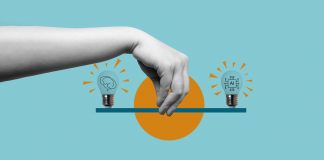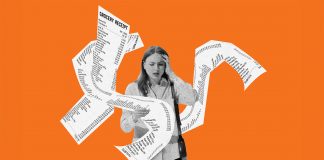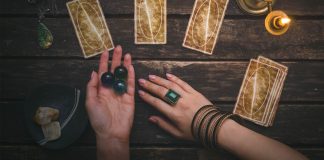I wanted to create my own nutrition AI agent
We are living in strange times. Never before have there been so many "mentoring programmes", "transformational coaching", or "psychological methods" for sale, and never before has it been easier for them to be generated by artificial intelligence. An entire industry promises change, clarity, and discipline, but often there is no human behind these promises, only a robot.
The light that penetrates the cracks in the wall of algorithms
With its appearance as a contemporary version of the Ancient Greek agora, the internet has made free expression an implicit part of our daily lives. However, the more we learn about the increasingly complex nature of algorithms and the intentions of those who have the power to dictate them, the more we realise that the digital world is not, by definition, a truly...
Money and faith: Christian strategies for times of crisis
A financial crisis never comes alone. It brings uncertainty, fear, sleepless nights, and the shame of being unable to meet one's expenses. Can faith bring meaning amid financial chaos?
The myth of more
In the late 1980s, Donald Trump was asked how much money it would take to make him happy. His answer? “Ten per cent more.”
For an old age worth living
“Life seems short.” A seemingly simple phrase—until it comes from someone celebrating their 117th birthday, who has walked paths that stretch across three different centuries.
The diamond with 1,000 facets | Aspects you didn’t consider when reading the biblical account of creation
Born in Africa, at the crossroads of three cultures—Arab, French, and Jewish—Jacques Doukhan was raised in a Jewish family. At the age of 18, he discovered the Christian gospel and became a Seventh-day Adventist, rejoicing that he did not have to renounce his roots in this church. Like Jews, Adventists observe the Sabbath and "share the same life ideals", explains Dr Doukhan.
Digital detox: a practical guide to a simpler life
Digital detox has become a real need for those who’ve realized that while the hyperconnectivity of the digital age promised unlimited access to information and entertainment—without sacrificing efficiency—many are now discovering that constant connectivity comes at the cost of inner peace. But is it still possible to reclaim simplicity in a world that seems unable to breathe without the internet?
Artificial intelligence is transforming the way the Bible is studied, both in laboratories and at home
Artificial intelligence is changing the way Bible researchers approach the study of Scripture. However, this is not just a privilege reserved for specialists—it is an adventure available to anyone with an internet connection.
AI and jobs: when your colleague is a machine
“AI is replacing human tasks faster than you think.” “Wall Street Job Losses May Top 200,000 as AI Replaces Roles.” “AI Set to Replace Workers Across 41% of Companies in the Next Five Years.” And more recently: “Bill Gates Predicts Only Three Jobs Will Survive the AI Takeover—Here's Why”. These headlines are fueling growing anxiety among those unfamiliar with artificial intelligence or those...
Saved by technology
The prospect of a future in which technology plays the supreme role in our lives is increasingly confirmed by the applications of scientific discoveries. In this context, it is even speculated that the nature of humanity will be profoundly changed, reaching a higher qualitative stage, so that, in the end, even the obstacle of death will be overcome.
Anxiety vs abundance: cultivating a better mindset
Before setting off to walk Papua New Guinea’s Kokoda Track, I was worried about a few things: blisters, staying hydrated, getting gastro (I’ve contracted it before in PNG—not a pleasant experience), being physically up to the challenge, having the right equipment . . . the list could probably go on. One thing I was not worried about was having a panic attack. Little...
Remembering the Earth landing
In 2019 we celebrated the 50th anniversary of the “great leap for mankind” Moon landing. It was an exciting, significant time in the history of our planet.
My search for the real Dracula
The train departs Bucharest, Romania’s “little Paris”—the old city section with beautiful architecture and impressive monuments, giving way to Communist-era apartment blocks. The plain outside the city is flat and featureless, broken now and again by a grove of trees—mysterious and impenetrable to the gaze. Decrepit houses, tattooed with graffiti, a splash of colour to contrast the uniform grey buildings, marching aimlessly past...
A parallel world
It is interesting to see Louis Baragona's portrait of a modern witch. Although he was sceptical at first, Louis tells how Emily Grote, an elegant "psychic" from Brooklyn, New York, changed his life.
The future is best seen with your eyes closed
When I watch chicks hatch in a nest and begin to perform the instinctive behaviours of their species, I think about what we might understand about ourselves, the human species, if we had the perspective of such a privileged observer.


























